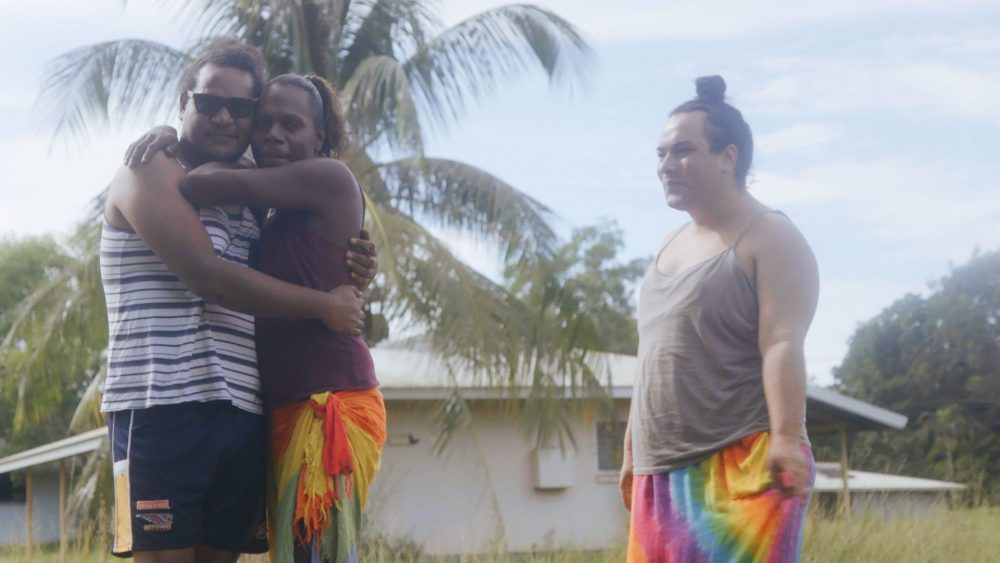This thriving gay and trans community have opened their doors to VICE’s film crew.
80km north of Australia’s mainland lies the Tiwi Islands, home to a group known respectfully as the Sistergirls. The Sistergirls make up 5% of the islands’ population, and are an exuberant part of the culture.
VICE’s documentary, Island Girls, is the second installment in their Australiana series, and explores how the Sistergirls sustain this intersection of traditional culture and gender identity. Complicated by the island’s limited access to doctors, let alone hormone treatment, this episode illustrates the push and pull of the Sistergirls’ experience living on their remote island home, mostly living publicly as women while observing local Indigenous traditions, and wanting to find love in the city and start families of their own.
The documentary focuses on the story of Laura, who has been waiting for gender reassignment hormones for 23 years.
We had the opportunity to chat with some of the other Sistergirls and director Anu Hasbold.
Crystal, when you stood up to the men around you who discriminated against you when you returned to Tiwi Islands, what thought process did you go through to find the courage to do that?
I got more stronger with myself. I told my Aboriginal people that I am a strong sistergirl and that white law and police will protect me. We have human rights for everybody and I am using that as tool.
Shaun, your family is so supportive—do you ever share your family with others who don’t experience that support you do?
I do share my friends [with my family]. Like my friend Jama, Jama has been in and out of my family because she doesn’t have the support that I have. She comes [to my] home when she’s need of some food or clothing or if she wants a bed to sleep on. Jama happens to call my mum, my mum’s sister in a cultural way, so Jama is basically my sister. I see mum as a strong mother that anyone could ask for she knows that some people don’t accept their children for who they are, that’s why she’s taken on that role. She’s learned to care for others.
Anu, how did you come across the Sistergirls in the first place? What prompted you to make the documentary now?
I first came across the Sistergirls in 2015 when Allen Clarke wrote an article about when he visited them on the Tiwi Islands. Initially, I was amazed at how they were able to navigate traditional culture and gender identity. Consequently, I researched into it and became particularly interested in trans health for Indigenous people; I contacted Dr Stephen Kerry from Charles Darwin University who was conducting the first ever study on transgender health and wellbeing in Northern Territory. Sadly I realised that there is an incredible lack of resources and research into trans health—little to no funding for their wellness and little to no access to mental health resources.
This is what motivated me to make this documentary. After speaking to the Sistergirls themselves, what motivated me further was their amazing determination to find love and happiness.
